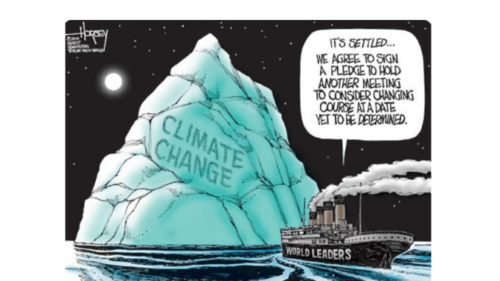
Wall Street Journal (4/27/22): “Unless the US prepares to win a nuclear war, it risks losing one.”
A popular cartoon aptly expresses the political angst provoked by media pundits today as they chatter on about nuclear war: Two people, both a little hunched over, burdened with the world, are walking down a city street. The woman says to the man, “My desire to be well-informed is currently at odds with my desire to remain sane.”
As we slide closer to what was once considered the ultimate insanity—nuclear Armageddon—corporate media seem to be egging on reckless leaders as they make thinly veiled threats across an imaginary nuclear line. On 60 Minutes (9/18/22), in response to the question, “What [would you] say to [Vladimir Putin] if he is considering using chemical or tactical nuclear weapons?” Joe Biden said, “Don’t. Don’t. Don’t. You will change the face of war unlike anything since World War II.” The president was, of course, referencing the US bombing of Hiroshima and Nagasaki.
Biden also reiterated the US’s goal of total victory: “Winning the war in Ukraine is to get Russia out of Ukraine completely.” Interviewer Scott Pelley did not point out that this would mean driving Russia out of Crimea—territory that Russia has long promised to defend with nuclear weapons (Diplomat, 7/11/14).
Two months into the war in Ukraine, the Wall Street Journal (4/27/22) proclaimed, “The US Should Show It Can Win a Nuclear War.” Gone are the days of rational deterrence and Mutually Assured Destruction (MAD), a doctrine based on knowledge of the deadly consequences of nuclear war: Just the threat of using such awesome destruction against an enemy would prevent the enemy’s use of those same weapons.
‘Dangerous’ peace deals

Insider (10/15/22) argues that “desire to avoid a nuclear war could actually make the world more dangerous.”
In a moment of sanity, the LA Times (8/15/22) admitted that a nuclear exchange involving only 3% of the world’s stockpiles would kill a third of the global population within two years. And The Nation (10/18/22) admonished the US and Russia both for what it called “playacting nuclear war,” each with its own nuclear games. Consortium News (10/31/22) warned that the US deploying nuclear-capable B-52s to Australia, presumably to threaten China, is “military madness.”
But other media have engaged in strained linguistic maneuvering to promote the murder of billions of people. One pretzeled headline from Insider (10/15/22): “Putin’s Nuclear Threats Are Pushing People Like Trump and Elon Musk to Press for a Ukraine Peace Deal. A Nuclear Expert Warns That’s ‘Dangerous.’” The article began, “An understandable desire to avoid a nuclear war could actually make the world more dangerous if it means rushing to implement a ‘peace.’”
Seeking to explain how we’re learning to love to bomb and give up our engagement with reasoned thought, sports writer Robert Lipsyte (TomDispatch, 10/18/22) noted that we’ve been trained to look for something huge, like a big bang or grand slam:
The dream of the game-changing home run has shaped our approach to so much, from sports to geopolitics. Most significantly, it’s damaged our ability to solve problems through reason and diplomacy.
When the Bomb is treated as the ultimate home run, the loss of reason and diplomacy lies directly at the feet of war censorship and propaganda, which have permeated corporate news since World War I. The domination of NATO narratives has followed this lead, even as the stakes have become existentially higher.
Demonize the enemy

Washington Post (3/10/22): “Perhaps nuance is overrated.”
There has been no better villain than Vladimir Putin, a point recognized by the Washington Post (3/10/22), which recalled decades of some of the worst movie stereotypes. But it concluded, “Real life provided the foundation for every pop culture depiction of Russia.” In other words, Putin really is a Bond villain.
He’s an enemy beyond redemption, not part of the human family, an unspeakable monster, an evil Other who cannot be reasoned with (Extra!, 5/14; FAIR.org, 3/30/22, 7/21/22). And this extends from Putin to Putin’s government to Russia itself.
Many Western news outlets repeated unsourced allegations made by Lyudmila Denisova, Ukrainian commissioner for human rights, of atrocities carried out by Russian troops. An implausible story about how two Russians raped a one-year-old baby to death was repeated in Business Insider, the Daily Beast, the Daily Mail, the Sun, Metro, the Daily Mirror and Yahoo News (Consortium News, 6/1/22).
Newsweek (4/8/22) promoted another story sourced to Denisova that claimed, “Russians Raped 11-Year-Old Boy, Forced Mom to Watch: Ukraine Official.” This story lacked the warning that an earlier Newsweek piece (3/4/22) about rape charges included: “Although rape is common during wars, accusations of rape can also be used as a propaganda tool to vilify the enemy and this tactic has been used in past conflicts.”
In response to Denisova’s stream of atrocity narratives, Ukrainian journalists and media outlets signed an open letter requesting that reports of rape and sexual assault be “published with caution,” particularly when involving children. The letter criticized Denisova’s reports, many of which were unverified, that went into great detail about the alleged rape of children, some as young as six months old, by Russians. They asked her to “check the facts” and disclose only information with “sufficient evidence.”
One week later, Denisova was fired from her position (Newsweek, 5/31/22).
Beyond redemption

Common Dreams (3/18/22) reports on a media “a narrative that war is inevitable, diplomacy is exhausted (before it even gets started), and being against militaristic US or NATO solutions to the crisis is unpatriotic at best.”
While rape and sexual assault are indeed military strategies in war, tales of raping and killing babies have also long served to foster outrage toward official enemies, from World War I German soldiers bayoneting babies to Kuwaiti babies yanked out of their incubators in the first Persian Gulf War.
But most Americans, especially young people, don’t recognize propaganda, because even when it is exposed at the time, it is not incorporated into the broader narratives of war. Debunked tales have gone down the Orwellian memory hole, and most of the true history of war goes down the same hole. As Bryce Greene pointed out on Counterspin (2/24/22), the roots of the escalations leading up to the war in Ukraine were “completely omitted from the Western media.”
Because the evil enemy is always solely responsible and beyond redemption, there is no need to include an accurate history, or correct the false claims, or include the reasons for war. As FAIR (3/4/22) pointed out, the Russian invasion of Ukraine is frequently described as “unprovoked.” The explanation for war is simple: It’s good vs evil.
And the US is always good, even though the country has perpetrated a senseless, expensive and brutal war in the Middle East for the entire 21st century. When corporate media did “explain” the war in Ukraine, it “almost universally gave a pro-Western view of US/Russia relations and the history behind them” (FAIR.org, 1/28/22). Common Dreams (3/18/22) observed that journalists were more hawkish at news conferences than Biden’s press secretary, often “cheerleading for US escalation in Ukraine,” with more weapons and no-fly zones.
Getting to the edge of doom

Real News (10/28/22): “Ukrainians have been paying a terrible price for the failure of ensuring sensible and reasonable negotiations.”
Foreign Affairs (9–10/22), citing US officials, reported that in April 2022, two months into the war, “Russian and Ukrainian negotiators appeared to have tentatively agreed on the outlines of a negotiated interim settlement,” in a deal worked out in Turkey. This deal was scuttled, however, reportedly after British Prime Minister Boris Johnson went to Kiev and told President Volodymyr Zelenskyy that the West wasn’t ready for a deal, and that there would be no Western security for Ukraine if he signed the accord (Ukrainska Pravda, 5/5/22; see ScheerPost.com, 9/1/22). In public remarks (8/24/22) four months later, Johnson declared that “this is not the time to advance some flimsy plan for negotiation with someone who is simply not interested”:
You can’t negotiate with a bear while it’s eating your leg, you can’t negotiate with a street robber who has you pinned to the floor, and we don’t need to worry about humiliating Putin any more than we would need to worry about humiliating the bear or the robber.
The US has likewise continually refused to negotiate the end to the war. The Real News Network (10/28/22) reported that before the war started, the Kremlin told Biden that Russia was interested in “legally fixed guarantees that rule out NATO expansion eastward and the deployment of offensive strike weapons systems in states adjacent to Russia.” The talks were not pursued—in the context of US establishment media offering opinions that a war would hurt Russia, and would therefore be a good thing for the US (FAIR.org, 1/15/22).
Protests across the country, organized by Code Pink and the Peace in Ukraine Coalition, hit the streets in September to call for an end to the war. The organizers interrogated the ahistorical, one-sided, distorted NATO narrative that leaves out NATO’s role in the conflict. Led by the US, NATO has now expanded from 12 countries to 30. The inclusion of Latvia, Estonia, Poland and Lithuania pushed right up to Russia’s borders (Common Dreams, 9/20/22).
On a long Twitter thread (2/28/22), commentator Arnaud Bertrand cited over a dozen “top strategic thinkers” who had warned what was coming if NATO continued on the path it was taking. In 1998, George Kennan said NATO expansion would be a “tragic mistake” that would certainly provoke a “bad reaction from Russia.” John Mearsheimer, a leading US geopolitical scholar, warned in 2015 that the West was leading Ukraine down a “primrose path,” and it would result in Ukraine getting “wrecked.” Russia scholar Stephen Cohen told Democracy Now! (4/17/14) that moving NATO toward Russia’s borders would militarize the situation. These arguments are rarely included in corporate news reporting on the Ukraine War.
Further, the US supported the 2014 coup in Ukraine, and has loaded Ukraine with arms to undermine the 2015 Minsk II peace agreement. Russia and Ukraine signed the accord to end the civil war that followed the coup and left an estimated 14,000 people dead in Ukraine’s industrial Donbas region. Corporate media habitually omit Minsk II, and actively deny the documented history of fighting between the neo-Nazi Azov Battalion and Russian separatists.
‘This isn’t a card game’

UN chief António Guterres (Axios, 9/26/22): “Nuclear weapons are the most destructive power ever created…. Their elimination would be the greatest gift we could bestow on future generations.”
Without context and accuracy, reasoned discourse and the ability to find solutions or engage in diplomacy are beyond our reach as we approach nuclear Armageddon. Corporate newsframes regularly exclude alternative voices of peace and those who call for an end to war, leaving out an entire discourse that has animated global discussions about conflict resolution for decades.
Karl Grossman (FAIR.org, 8/5/22) reported that talk of nuclear weapons proliferated in US newspapers this year—mentioned 5,243 times between February 24 and August 4, 2022—but calls for an end to the nuclear threat were rare. The Treaty on the Prohibition of Nuclear Weapons, which went into effect in 2021, was mentioned only 43 times, mostly in letters to the editor or opinion columns.
There is a reason that threatening war, and threatening violence against another state, are violations of Article 2.4 of the UN Charter. As Chris Hedges says, war itself is the greatest evil. War itself causes the ultimate humanitarian disasters.
Speaking at an event to commemorate the International Day for the Total Elimination of Nuclear Weapons, UN Secretary-General António Guterres (Axios, 9/26/22) said:
The era of nuclear blackmail must end. The idea that any country could fight and win a nuclear war is deranged. Any use of a nuclear weapon would incite a humanitarian Armageddon.
And the International Campaign to Abolish Nuclear Weapons (ICAN) observed:
This isn’t a card game, the risk of nuclear war is increasing with every threat. Using nuclear weapons or threatening to use nuclear weapons is unacceptable and this must stop now.
The number of countries now signed onto the treaty to end nuclear arms has risen to 91. That most of the world is not on the side of the US is information that is absent from big journalism’s reporting. The many entreaties from governments across the globe to negotiate an end to the war in Ukraine are not on corporate news agendas.
Choosing planet over war

Common Dreams (9/5/22): “The only realistic alternative to this endless slaughter is a return to peace talks to bring the fighting to an end.”
Journalists and peace activists alike have argued that war in general, and the war in Ukraine exacerbate the climate crisis. The Intercept (9/10/22) documented the destructive power of the $40 billion worth of weapons the US has supplied to Ukraine, now up to $50 billion, which is over “four times the budget of the Environmental Protection Agency during an existential climate crisis of wildfires, droughts, storms and rising sea levels” (Common Dreams, 9/20/22). And World Beyond War estimates that the enormous fossil fuel footprint of the Department of Defense makes it the largest institutional user of oil in the world.
Code Pink’s Medea Benjamin and Nicolas J.S. Davies (Common Dreams, 9/5/22) warned:
Further escalation should be unthinkable, but so should a long war of endless crushing artillery barrages and brutal urban and trench warfare…. The only realistic alternative to this endless slaughter is a return to peace talks to bring the fighting to an end.
The fact that 30 progressive politicians felt compelled to pull back a letter requesting negotiations to end the war in Ukraine the day after it was delivered to President Biden indicates the severity of the lockdown on public debate about war in the US.
Today US combat troops remain stationed in Iraq, Syria, Libya, Kenya, Somalia, Yemen, Jordan, Kuwait, Qatar, the UAE, Turkey, the Philippines and Cyprus, while Washington conducts counterterrorism operations in 61 additional countries around the world. Tens of thousands of civilians have been killed by US airstrikes alone in the last two decades. US wars are still killing and starving people around the world.
To date, there has been no accountability for wars’ failures, or for the trillions of dollars unaccounted for, or the atrocities perpetrated on the people of the Middle East. The Real News Network (9/14/21) reported that the total “cost of US militarization since 9/11 is a staggering $21 trillion.” After so much destruction in the Middle East fighting a “war on terror,” the worldwide number of both terrorist attacks and victims are “three to five times higher annually than in 2001” (Brookings, 8/27/21). As the Institute for Policy Studies’ John Cavanagh and Phyllis Bennis (The Nation, 9/10/21) argue, “That money should have been used for healthcare, climate, jobs and education.”
Big journalism does not tie military spending to the lack of funding for domestic programs popular with Americans such as Medicare for All, and even left-wing democrats have not found a way to make that case. And the voices for peace are censored by the search algorithms that hide the alternative media and the broader dialogue that can be found there.
Caitlin Johnstone (4/7/22) has argued that “the US empire has been working to shore up narrative control to strengthen its hegemonic domination of the planet” for some time, and the war in Ukraine has certainly furthered that goal.
Declassified Australia (9/22/22) detailed a “covert online propaganda operation” promoting “pro-Western narratives” for two decades, operating mostly out of the United States. Declassified Australia (11/3/22) further revealed that a team of researchers at the University of Adelaide unearthed millions of tweets by fake “bot” accounts pushing disinformation on the Ukraine war. The “anti-Russia propaganda campaign” of automated Twitter accounts flooded the internet at the start of the war. Of the more than 5 million tweets studied (both bot and non-bot), 90% came from accounts that were pro-Ukraine.
Every day we move closer

“The big one is coming,” promises the commander of the US nuclear force (DoD News, 11/3/22).
Navy Adm. Charles Richard (DoD News, 11/3/22; AntiWar.com, 11/6/22), the commander of US Strategic Command, stated that so far in Ukraine, it’s been “just the warmup.” He warned: “The big one is coming…. We’re going to get tested in ways that we haven’t been tested [in] a long time.”
Recently the US released the 2022 Nuclear Posture Review (NPR), which reported that “arms control has been subdued by military rivalry.” The position document affirmed the US doctrine allowing for the first use of nuclear weapons, and identified one use of nuclear weapons as to “achieve US objectives if deterrence fails.”
As journalist and war critic Ben Norton put it on Twitter (11/6/22), “The US empire really is threatening all life on Earth with potential nuclear apocalypse.”
Even in the face of the lack of reasoned nuclear war reporting in corporate media, nearly 60% of Americans support diplomatic efforts to end the war in Ukraine “as soon as possible,” even if that means Ukraine having to make concessions to Russia. As Alfred de Zaya, former UN independent expert on the promotion of a democratic and equitable international order, tweeted:
If the US were a functioning democracy, US citizens would be asked whether they want billions of dollars to be given to Ukraine for war, or whether they would prefer promoting mediation with a view to a ceasefire and sustainable peace.
Corporate media are failing democracy, and failing to disclose our current, stark choice between war on the one hand and life and the planet on the other. They speak in a loud voice that shouts for more war. In doing so, they censor and poison public discourse and position Americans as targets of propaganda—the denizens of empire—instead of citizen participants in a democracy who determine their own fates.
The Bulletin of Atomic Scientists (1/20/22) warned, “The doorstep of doom is no place to loiter.” The sane alternative to war—and the humane thing to d0—would be to close the door on war, lock it, and throw away the key.
The post NATO Narratives and Corporate Media Are Leading to ‘Doorstep of Doom’ appeared first on FAIR.
This post was originally published on FAIR.

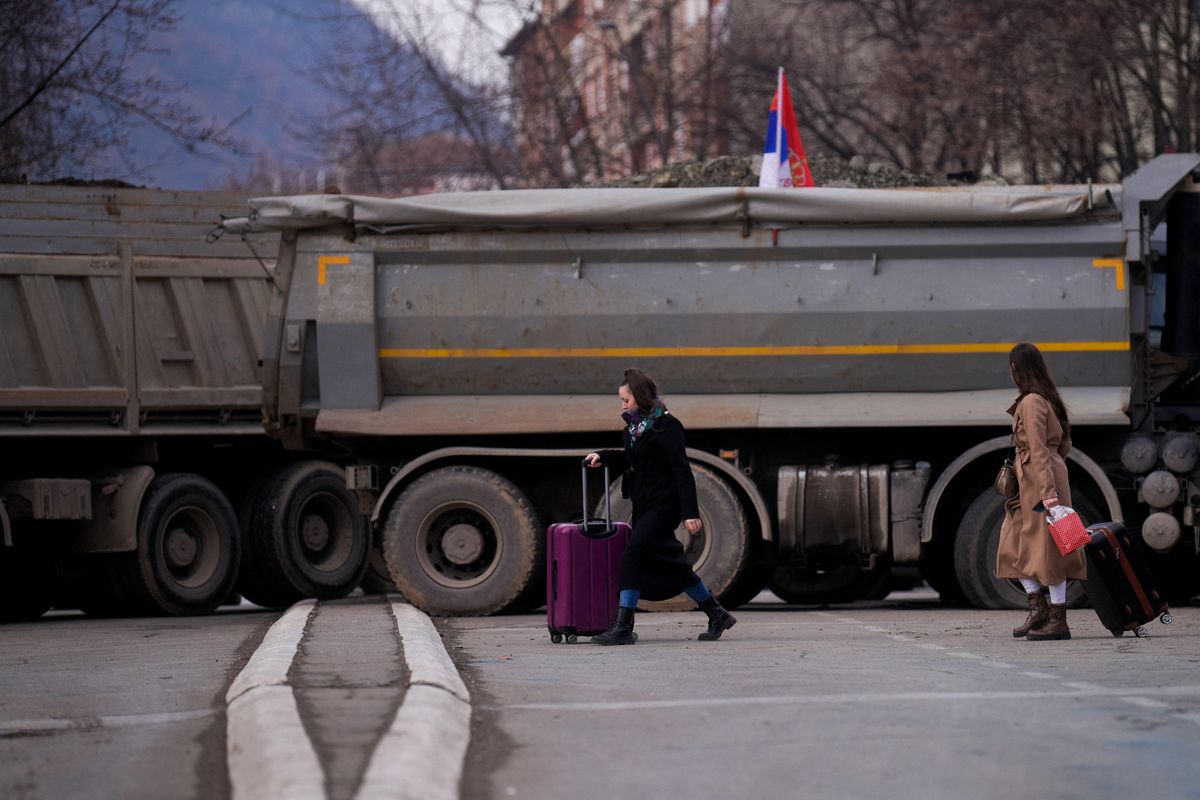

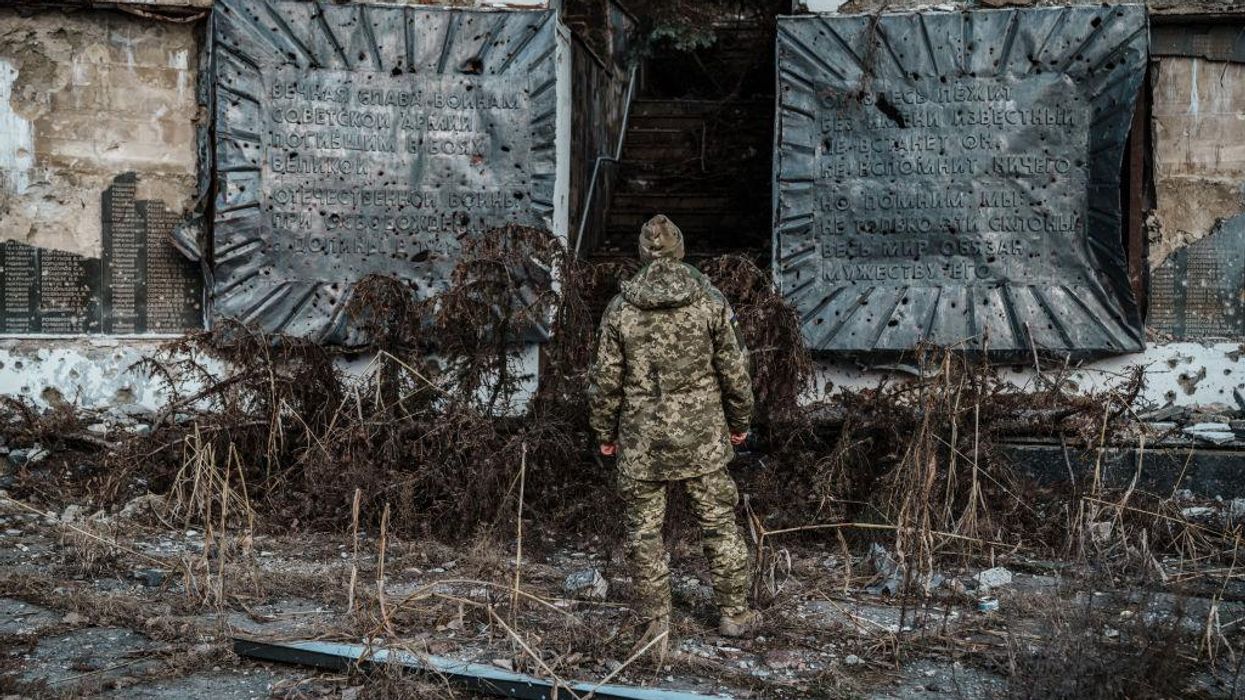
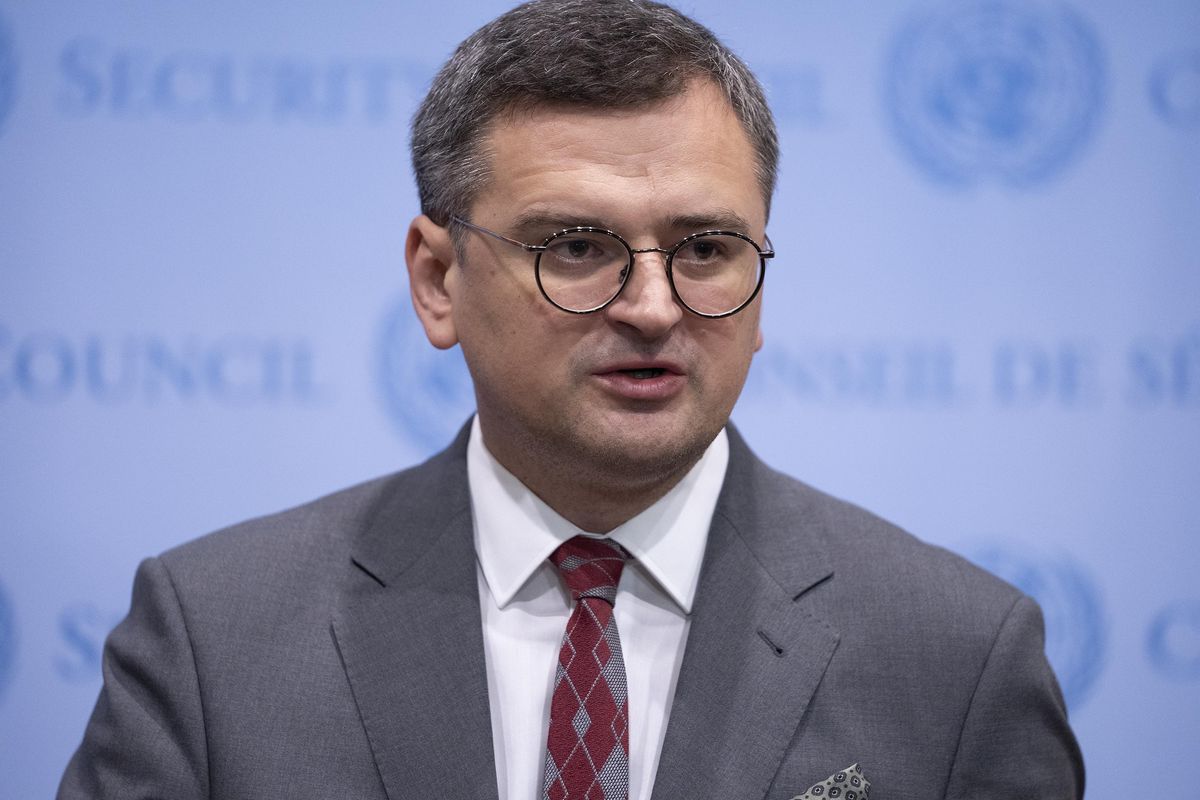
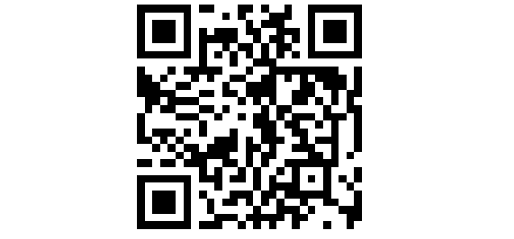










![How the West Brought War to Ukraine: Understanding How U.S. and NATO Policies Led to Crisis, War, and the Risk of Nuclear Catastrophe by [Benjamin Abelow]](https://i0.wp.com/covertactionmagazine.com/wp-content/uploads/2022/12/how-the-west-brought-war-to-ukraine-understanding.jpeg?resize=159%2C244&ssl=1)
















